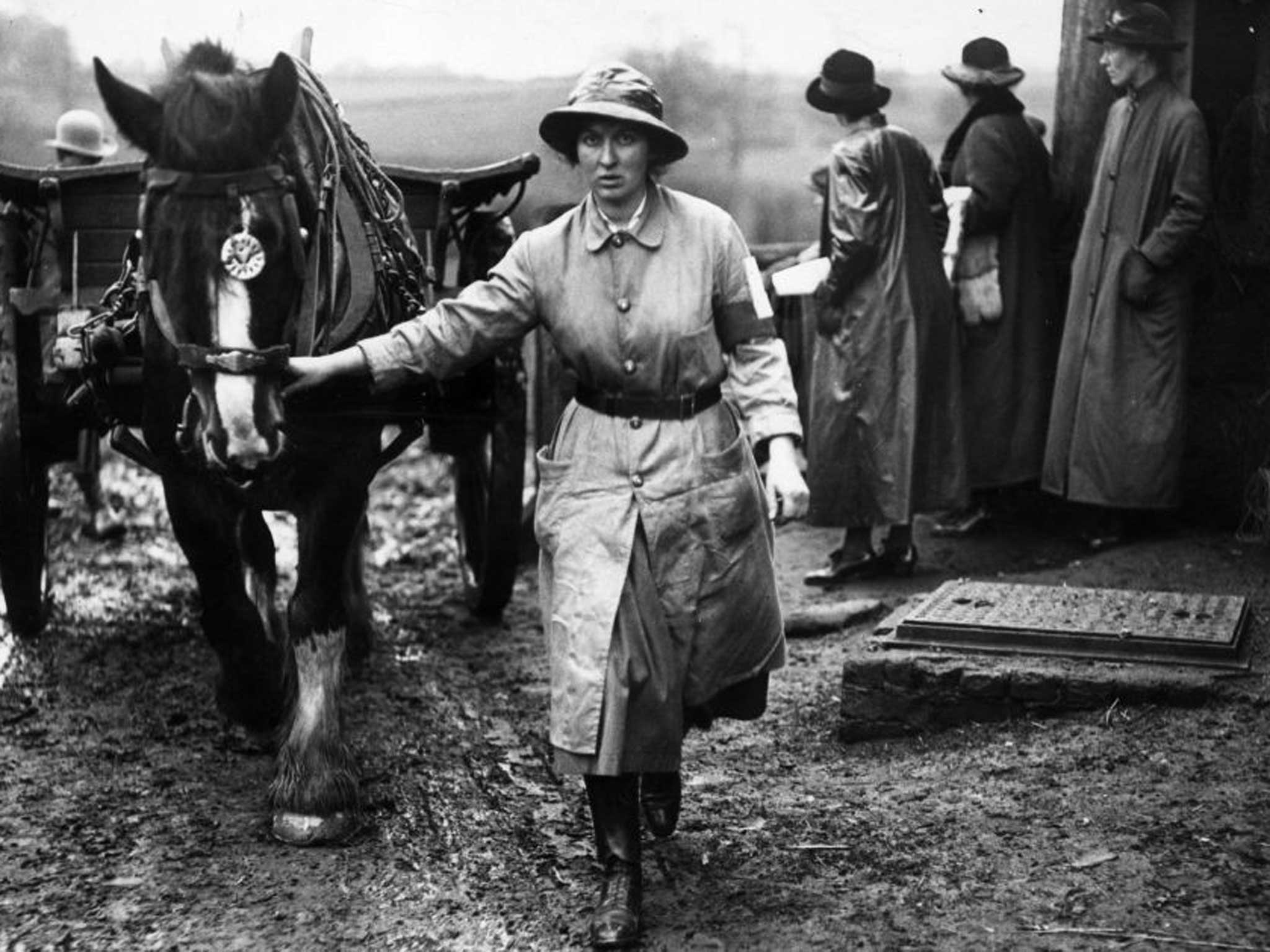A History of the First World War in 100 Moments: The new British front - in the fields
With food imports blocked by German U-boats, the Women's Land Army was vital to Britain's survival

While their husbands and brothers crouched in trenches across The Channel, a "forgotten army" of women was being deployed into fields at home in April 1917.
Britain was on the brink of starvation in the penultimate year of the war and needed radical measures to make sure food production kept pace with need. Bad harvests and attacks on shipping by German U-boats had pushed food shortages to critical levels.
With two million extra acres of agricultural production needed, the government began a campaign to recruit as many female hands as possible. Thousands of women picked up ploughs, hoes and milk pails in response. Recruits ranged in age from 18 to 60, though most were young, single women from middle-class families.
For many women, responding to the patriotic call of duty meant being liberated from their restricted, chaperoned existence in towns and cities. For others, a new life in the fields just meant cripplingly hard work.
Doris Robinson, from Rochdale, went to work on a farm in Loughton, Essex, as part of the WLA. Her husband was fighting in Gallipoli and she wanted to do something to help the war effort. The work was exhausting. In an archive interview currently being exhibited at the Imperial War Museum North, she recalled: "I had the whole farm to look after. I had seven Jersey cows, and about 400 hens, and a goat, and ducks. And there was only me. I had to go at six in the morning, you see, for milking. And I had to stay 'til about 10 at night, because they had a lot of eggs incubated that had to be turned."
The hours were relentless and her new boss was unforgiving. "I asked if I could go to church on Christmas day. 'No' he said. 'I'm not paying you to go to church, I'm paying you to work'. I worked seven days a week.
"If I wanted a bath there was no bathroom. I had to take newspapers and put them all round the greenhouse and carry the water down .… It was a very cold winter in 1917 and everything was frozen."
Efforts by women's campaigners to get government support for female agricultural workers earlier in the war had been marred by resistance from traditionalist farmers. Roland Prothero, a Conservative MP and agricultural historian was one of the few politicians who was supportive of the idea but he warned women "not to antagonise the male worker" by accepting lower wages.
It was not until Prothero was appointed Agricultural Minister by David Lloyd George at the end of 1916 that government support for the Women's Land Army began. The first recruits of the official scheme – which included a month's training, a wage and a uniform – were released to farms across the country in April 1917. Wages were advertised as 18 shillings plus bonuses a week, with the opportunity for more if a woman showed particular skill.
An article in the Aberdeen Daily Journal in March 1917 exhorting "town girls" to volunteer for the Land Army stressed the urgency of the need for women to sign up, saying: "Immediate enrolments are urged as after the middle of April the men now on furlough for farm work will be recalled to the army."
The newspaper assured potential recruits that there was a chance for the pay to improve "when a girl can rear, take to market and sell a prize beast, she will be worth high wages and her War Agricultural Committee will see she gets them".
By 1918, the final year of the war, there were 23,000 official Women's Land Army recruits and female labour made up around a third of all the agricultural workforce. Many women working on farms did so outside the scheme, meaning that in total more than a quarter of a million women worked in agriculture during the conflict.
Tomorrow: Mutiny in the French trenches
The '100 Moments' already published can be seen at: independent.co.uk/greatwar
Subscribe to Independent Premium to bookmark this article
Want to bookmark your favourite articles and stories to read or reference later? Start your Independent Premium subscription today.

Join our commenting forum
Join thought-provoking conversations, follow other Independent readers and see their replies